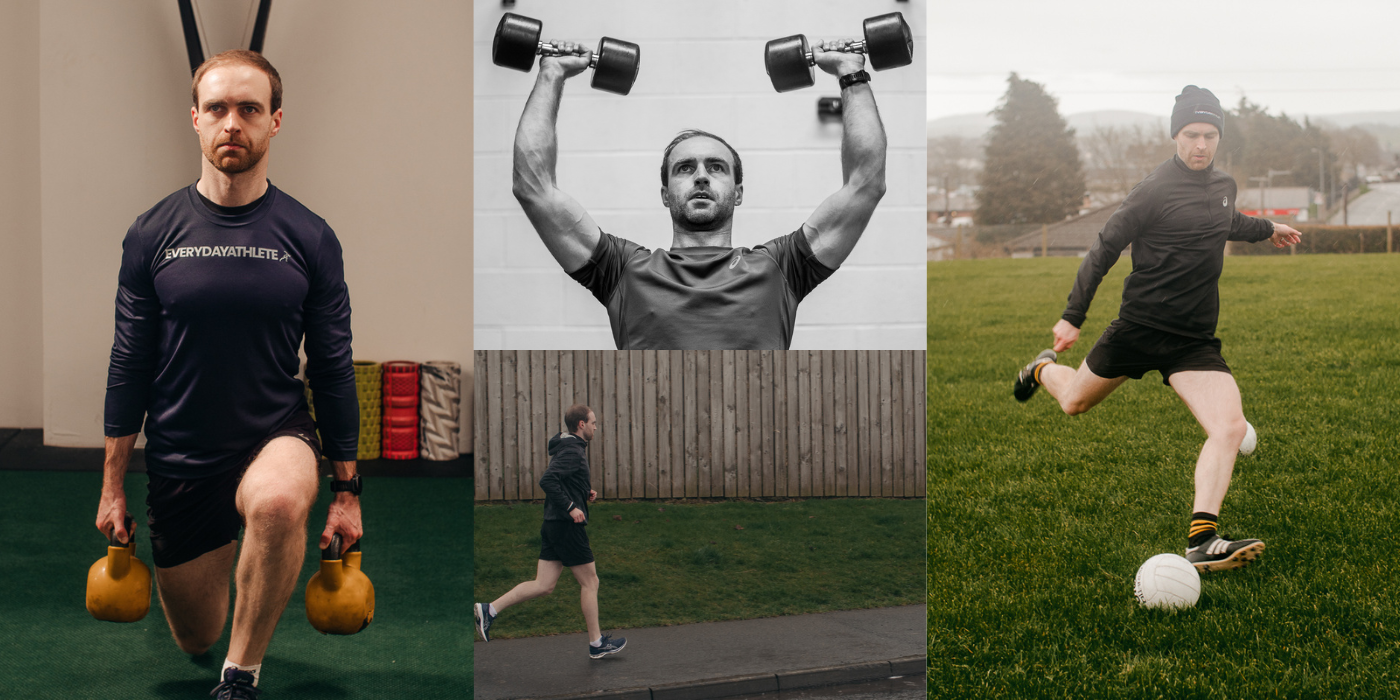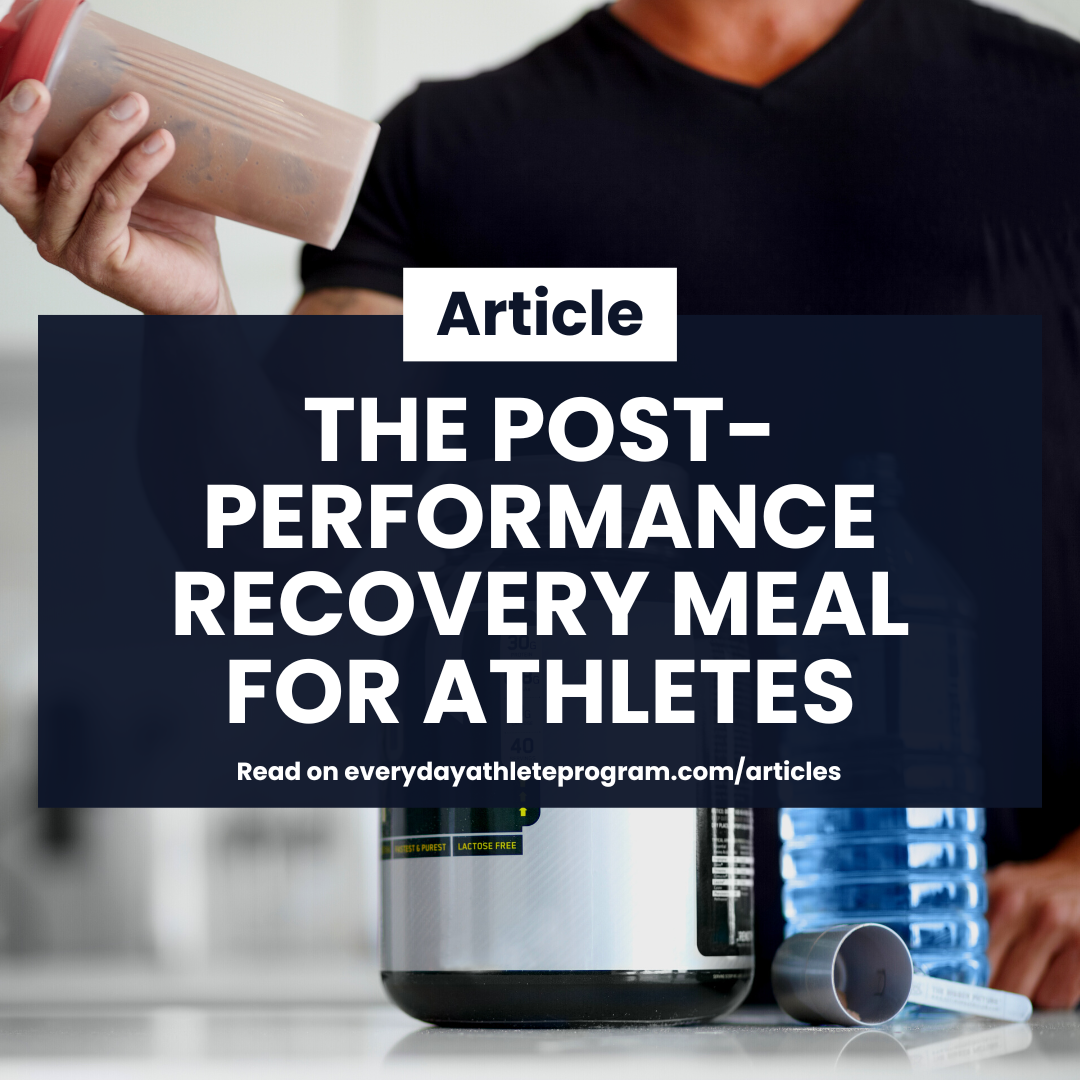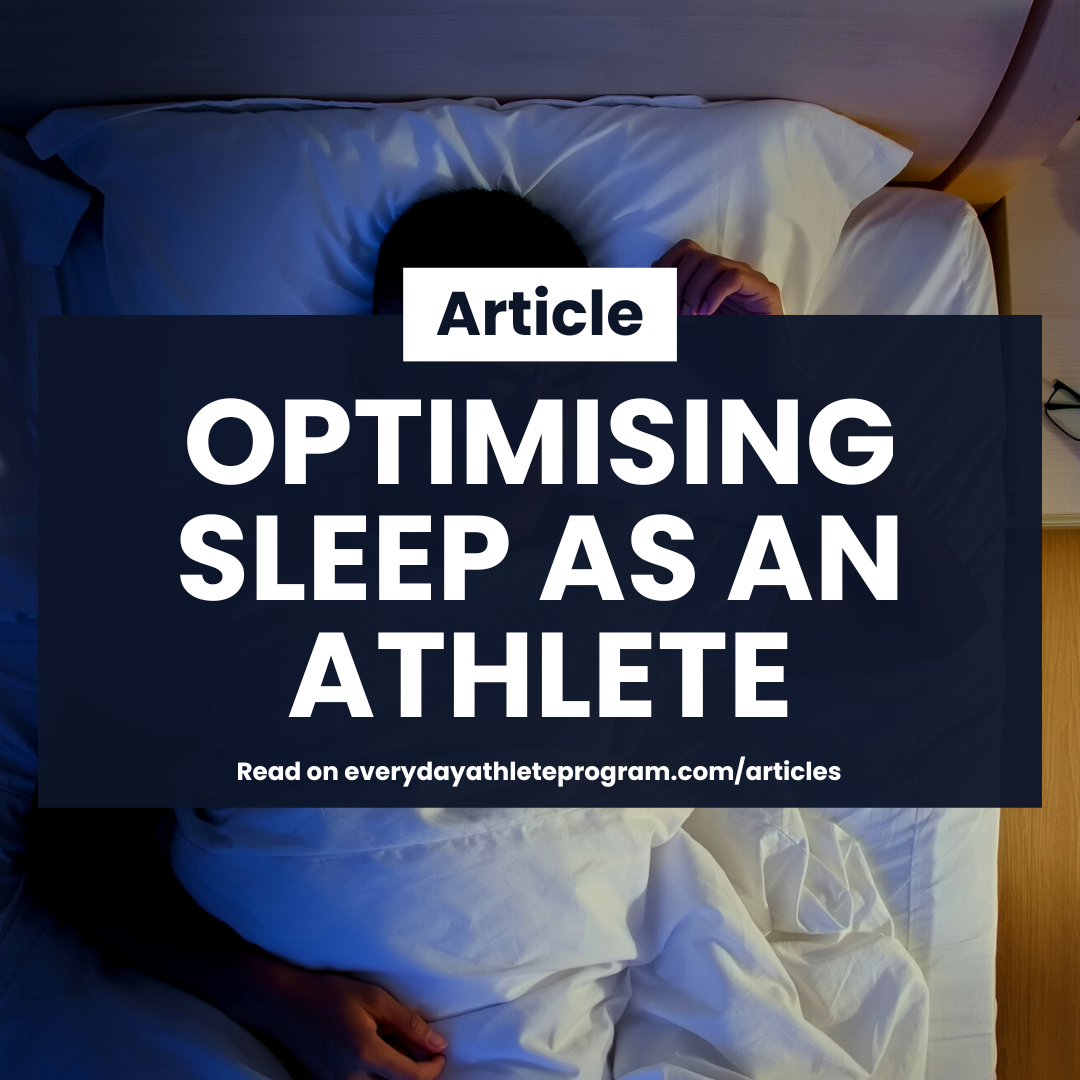I remember sitting in Croke Park at a GAA All-Ireland final, and seeing one of my former nutrition coaching clients veering off to the sideline at half-time while the rest of his team exited the pitch down the tunnel.
I feared he was injured and was looking for the physio.
Turns out he was just grabbing the drink shaker he’d been sipping from during the first half and was planning on finishing during the half-time break, as I’d advised him during our time working together the year before.
I was glad to see he was still finding benefit from it, but I was also impressed to see he’d stayed consistent with it ever since, right up to the day he went on to win the All-Ireland title.
What was in that drink is based on what I’ll go through here.
If you’ve read my pre-match meal article, you’ll recognise the elements below, illustrating that the goals of the intra-performance nutrition period is more or less an extension of the pre-performance period, with a few key differences, which will be outlined here.
With the said, the 4 goals of intra-performance nutrition are to:
1. Maintain fuel availability.
2. Maintain hydration levels.
3. Minimise muscle protein breakdown.
4. Do the above whilst minimising digestive upset
1. Maintain fuel availability.
As you’ll likely know if you’ve read previous articles, carbohydrates are the primary fuel source for moderate- to high-intensity exercise.
By the time it gets to match-day or race-day, the fuel required will (hopefully) have been provided through ongoing carbohydrate intake, potentially a carbohydrate loading strategy the day before, and the meal before the event.
With that said, the time during the event (or even training sessions) provides us an opportunity to add additional fuel via quick digesting carbohydrates.
Those carbohydrates will be used preferentially to the stored glycogen, thereby sparing the glycogen for later into the event, and potentially delaying fatigue onset as a result.
As you can imagine, the importance of supplying carbohydrates in this way will increase as the intensity and duration of the event increases.
As an example, someone who is running a marathon, which could take 3-5 hours of consistent output, will benefit more from consuming carbohydrates during that run - given the increased carbohydrate requirements - than a GAA player playing for 60-70 minutes will, even though the GAA player is still likely to benefit.
For endurance events lasting multiple hours, where glycogen availability starts to become a limiting factor to performance, up to a point, consuming as much carbohydrate as is feasible will help delay fatigue.
However, there is research suggesting that most people can only digest about 1g of carbohydrate per minute (i.e. 60g per hour), particularly during sporting events, where digestive function may be decreased due to less blood flow to the gut.
This can be increased by “training the gut”, through exposing it to gradually higher doses of intra-training carbohydrates over time, and by optimising the sources of those carbohydrates.
For example, combining glucose-based carbohydrate sources with fructose-based sources can increase the digestibility of the overall mixture.
These elements have led to some cyclists, for example, consuming 120g+ of carbohydrate per hour.
This is less applicable to field sports, where low glycogen availability is less of a concern due to the shorter duration.
A GAA, soccer, or rugby player, for example, might benefit from consuming 20-30g of carbohydrate during the warm-up and 20-30g at half-time, with the option of having another 20-30g should the match go to extra time, but there are probably no advantages of trying to push beyond that.
A distance runner on the other hand, might aim to consume 20-60g of carbohydrates every 20-30 minutes for the duration of the event.
These carbohydrates can come in many forms including sports drinks, energy gels, jelly sweets, and carbohydrate powders, each of which have their advantages and disadvantages.
2. Maintain hydration levels.
As with carbohydrates, adequate hydration in the days and hours leading up to your training session, match, or other performance event should put you in a good place.
That is to say, showing up to the event hydrated is probably more important than what you’re going to do during the event.
However, given that you are going to be using and excreting both fluids and electrolytes during the event, replacing those is going to be important when it comes to optimising performance throughout the event.
Otherwise, as internal fluid levels decrease, problems occur with temperature regulation and electrolyte levels, which can lead to issues with blood flow, muscle contractions, and increased perceived exertion.
Providing adequate levels of fluids and electrolytes during exercise can help avert those issues.
The amounts of these required will depend on the intensity of the session, the length of the session, the ambient temperature, and the individual's sweat rate.
A good starting point is around 250ml of water (with electrolytes/salt) every 15-30 minutes.
Some research suggests that the gut can’t generally process much more than about 1 litre of water per hour, so limiting your intake to below this level is recommended.
In terms of electrolytes, aiming to consume enough to provide 0.5-1g of sodium per hour (in the form of ~1.25-2.5g of table/sea salt, or an electrolyte supplement - which will also provide other necessary electrolytes) is generally a good range to aim for for most athletes, but as mentioned, there are individual aspects that will affect this.
You can read more on hydration here.
3. Minimise muscle protein breakdown.
Protein is generally seen through the lens of recovery and muscle building, and for good reason.
The amino acids supplied through protein can be seen as the building blocks of muscle tissue, and sufficient intakes of protein allows for the creation of new muscle tissue and the reduction in breakdown of existing muscle tissue.
Amino acids are less well-known for their other functions, such as their role in glycogen replenishment, hydration, and in the creation of neurotransmitters such as dopamine, serotonin, and norepinephrine, which are crucially important when it comes to the psychological component of athletic performance.
When it comes to the intra-performance period, in most cases, providing extra amino acids (or protein) during the event itself is not necessary.
However, as with carbohydrates, increasing the intensity and duration of the event increases the potential need for intra-performance supplementation of protein or amino acids.
That is to say, if you’re not training hard and/or long, there’s no need to even consider intra-performance protein intake.
Additionally, the length of time between the previous protein feeding and the event is important to take into account.
If the previous protein feeding was within an hour or two leading up to the event, it is likely that there will be ample amino acids still available during the training session or competitive event.
However, if there is a long delay between the previous protein feeding and the event (e.g. If you’re training first thing in the morning without having had breakfast, or if your schedule meant you weren’t able to eat close to the event), consuming some form of protein or amino acids intra-performance becomes more beneficial.
If you deem it potentially beneficial to consume protein intra-training, 20-30g of protein in the form of whey or other protein powder is sufficient.
An EAA (essential amino acids) supplement can be used (about 10g) in place of a protein powder during activity if consumption or digestion of protein powder is problematic for you (which may be the case when the training is sufficiently intense and/or long).
4. Do the above whilst minimising digestive upset
All the recommendations above mean very little if you’re bending over with stomach cramps during a race or having to run off the pitch to the toilet in the middle of a GAA match or having to stop your run to run into the local cafe toilet.
For that reason, doing the above whilst minimising digestive upset with your intra-performance nutrition is key.
This can generally be done by addressing the quantities of each of the intra-performance ingredients, as outlined in the next section, but can also be avoided by starting off lower than these recommendations and building up over time.
As with all nutritional interventions, it’s also wise to trial any of this advice in training sessions before trialling them in important matches or races.
THE ULTIMATE HOME-MADE INTRA-PERFORMANCE DRINK
Given all the above, if you have the ability to access a drink bottle/shaker during the training session, run, match, gym session, or other performance event, you can consider making our own intra-performance drink or homemade sports drink.
Based on the above, this should consist of:
A carbohydrate powder (20-60g of something like cyclic-dextrin, maltodextrin, or dextrose based on duration and intensity of the event),
Electrolytes (enough to provide 0.5-1g of sodium, in the form of supplement or salt),
Whey protein or an EAA powder (20-30g or ~10g, if necessary),
500-1000ml of water (and diluting juice if needed for taste).
In order to minimise digestive upset this drink should be a 7-10% solution, meaning that only 7-10% of the total drink should be made up of the ingredients above with the other 90%+ being made up of water.
E.g. If you had 1 litre of total drink, no more than 100g of that should be coming from the added ingredients.
You can start sipping on this from the start of the warm-up right through to the end of the event.
If more practical, you can drink half of it before the session, and the other half during breaks and/or at half-time.
You could also experiment with the addition of some sugary sweets or energy gels if you need more carbohydrates, which would be of particular importance for something like a marathon, where carrying a sufficiently large bottle/shaker isn’t practical.
In some cases, it can actually make more sense to simply use energy gels at set intervals, and sip on water when it’s available - This will be the approach that most recreational runners will use in a marathon, for example.
You could also use this approach as a GAA or other sport athlete too if you found it easier than making and transporting the drink, by taking a gel before the match and one at half-time, then sipping on water (and potentially electrolytes if needed) during breaks and at half-time.
With these recommendations, it's important to pay attention to your body's feedback in terms of mainly how you feel from a digestive perspective and how your perceived energy levels are affected.
Finally, it's important to practice this approach in training sessions before trying them out in matches, races, or other competitive events.
This will help avoid any unwanted stomach upsets or energy fluctuations when avoiding those things matters most.
Article Written By Conor O’Neill
You can find out more about The Everyday Athlete Program by going to everydayathleteprogram.com/coaching.


























